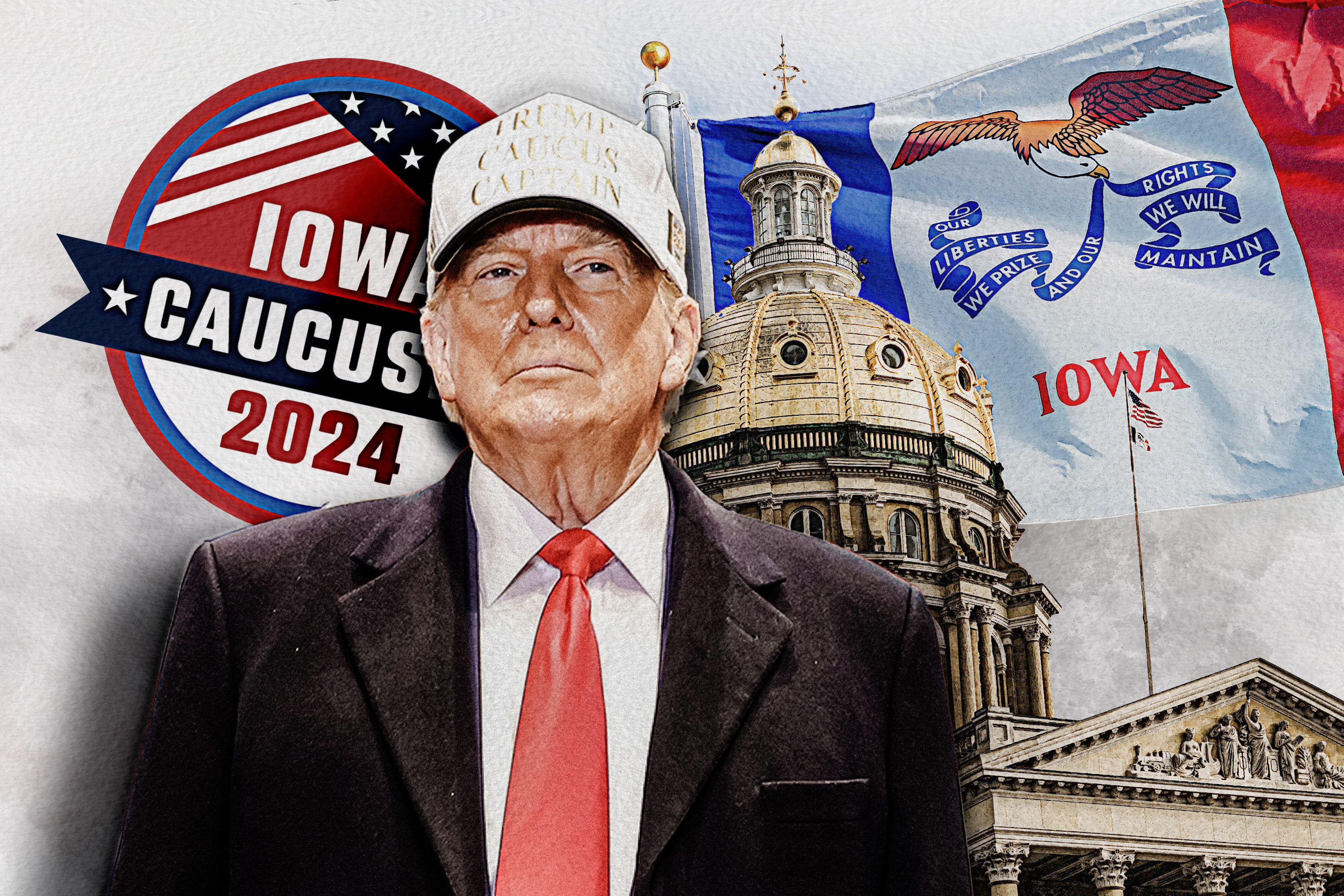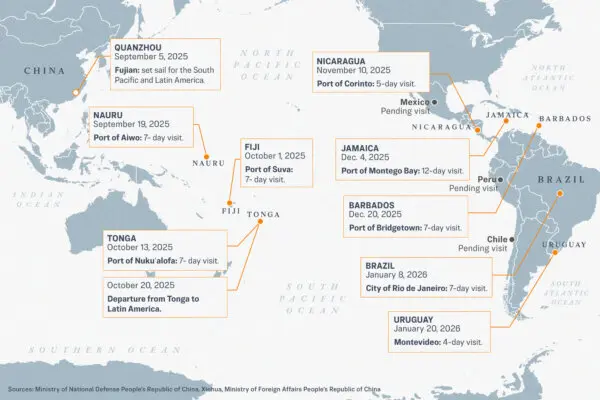DES MOINES, Iowa—Former President Donald Trump claimed a huge victory in the Iowa caucuses, cementing his place as the prohibitive favorite in the race for the Republican presidential nomination.
The night wasn’t a total loss for others, as Florida Gov. Ron DeSantis claimed a second-place finish, scoring well above his recent standing in the polls, and former U.N. Ambassador Nikki Haley finished third, falling below expectations based on recent polls that showed her in second place.










